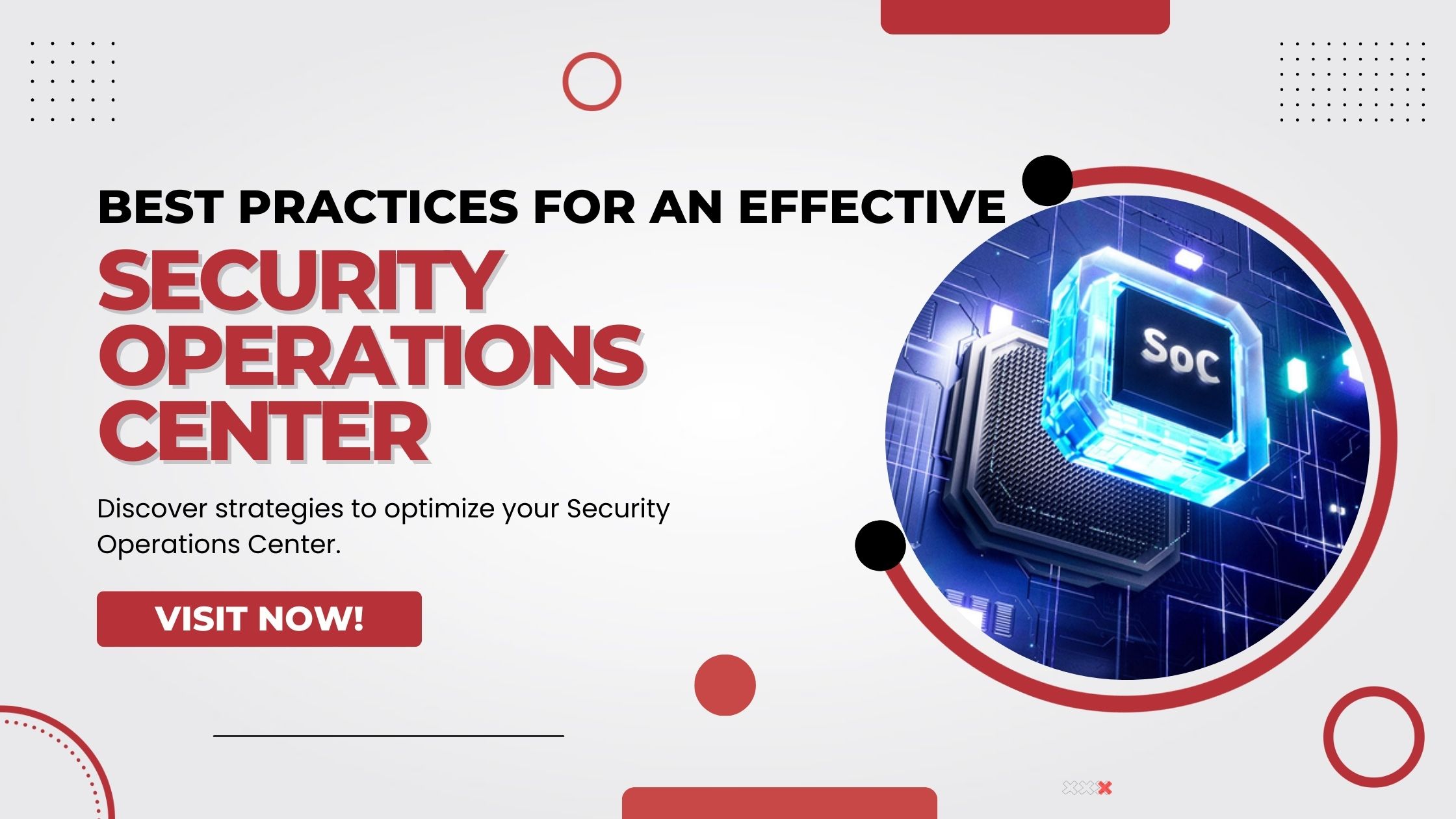
In today's digital age, cybersecurity has become paramount for individuals and organizations alike. The constant threat of cyberattacks necessitates the establishment of a robust Security Operations Center (SOC). An effective SOC is the cornerstone of any organization's cybersecurity strategy. In this article, we will delve into the best practices to ensure the smooth and secure functioning of your Security Operations Center.
The first step in setting up an effective SOC is to define its purpose. It is the nerve center of your organization's cybersecurity efforts, responsible for monitoring, detecting, and responding to security incidents.
Your SOC should be aligned with your organization's broader business objectives. This ensures that your cybersecurity efforts are in sync with the company's mission and values.
An effective SOC requires skilled professionals. Recruit experienced security analysts, incident responders, and threat hunters.
Invest in ongoing training and education for your SOC team to keep them updated with the latest threats and technologies.
Equip your SOC with advanced security tools like SIEM (Security Information and Event Management) and AI-powered threat detection systems.
Automate repetitive tasks to free up your team for more critical tasks. Orchestration ensures seamless coordination in incident response.
Constantly monitor your network for suspicious activities and anomalies. Real-time detection is key to averting potential threats.
Leverage threat intelligence feeds to stay ahead of emerging threats and vulnerabilities.
Create well-defined incident response playbooks that guide your team through various scenarios.
Promote collaboration between your SOC team and other departments. A swift response to incidents requires effective teamwork.
Ensure your SOC is compliant with industry-specific standards and regulations, such as GDPR or HIPAA.
Regularly audit your SOC's procedures to identify areas that require improvement.
After each incident, conduct a thorough analysis to learn from the past and enhance future responses.
Establish key performance indicators (KPIs) to measure the effectiveness of your SOC continually.
In a world where cyber threats are ever-evolving, an effective Security Operations Center is non-negotiable. By following these best practices, you can fortify your organization's cybersecurity posture, protect sensitive data, and maintain customer trust. Remember, a well-structured SOC is your first line of defense against the digital threats of the modern world.
A SOC's primary role is to monitor, detect, and respond to security incidents in an organization's digital environment.
Alignment with business goals ensures that cybersecurity efforts are in harmony with the organization's broader mission and objectives.
SOC team members should possess skills in threat analysis, incident response, and security technology operation.
Automation reduces response times, minimizes human errors, and allows the SOC team to focus on more complex tasks.
Compliance ensures that an organization follows the necessary security and privacy protocols, reducing the risk of data breaches and legal issues.